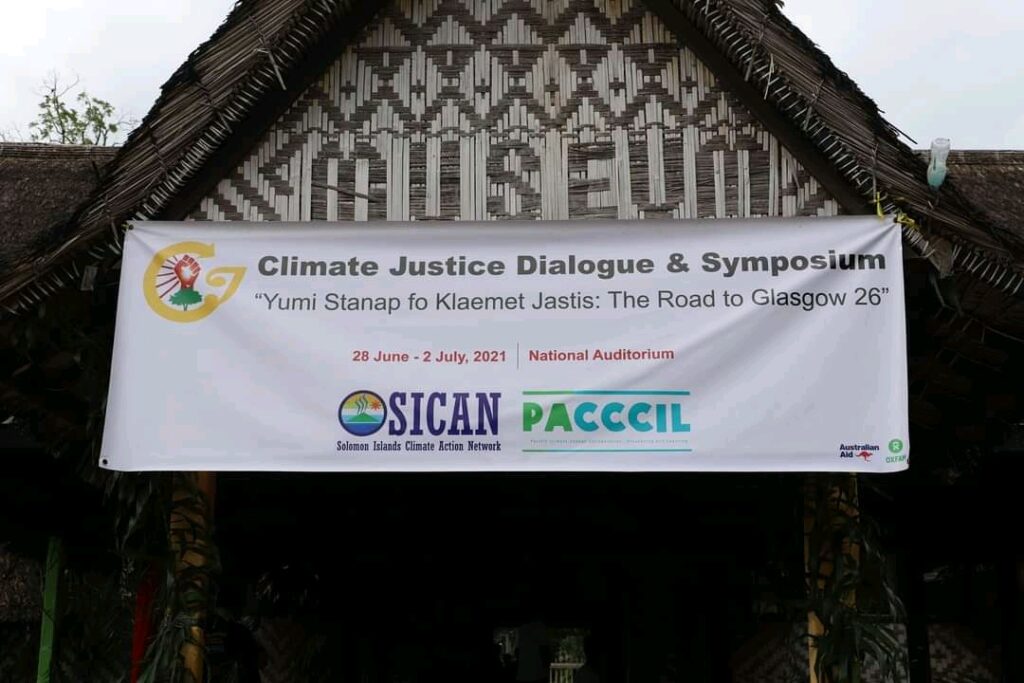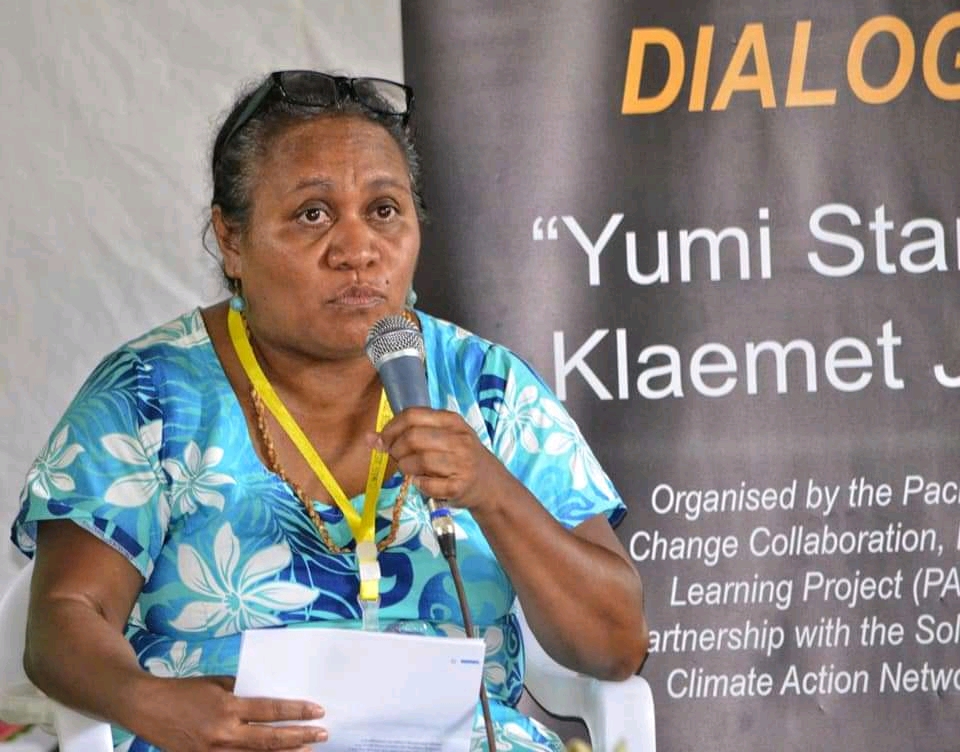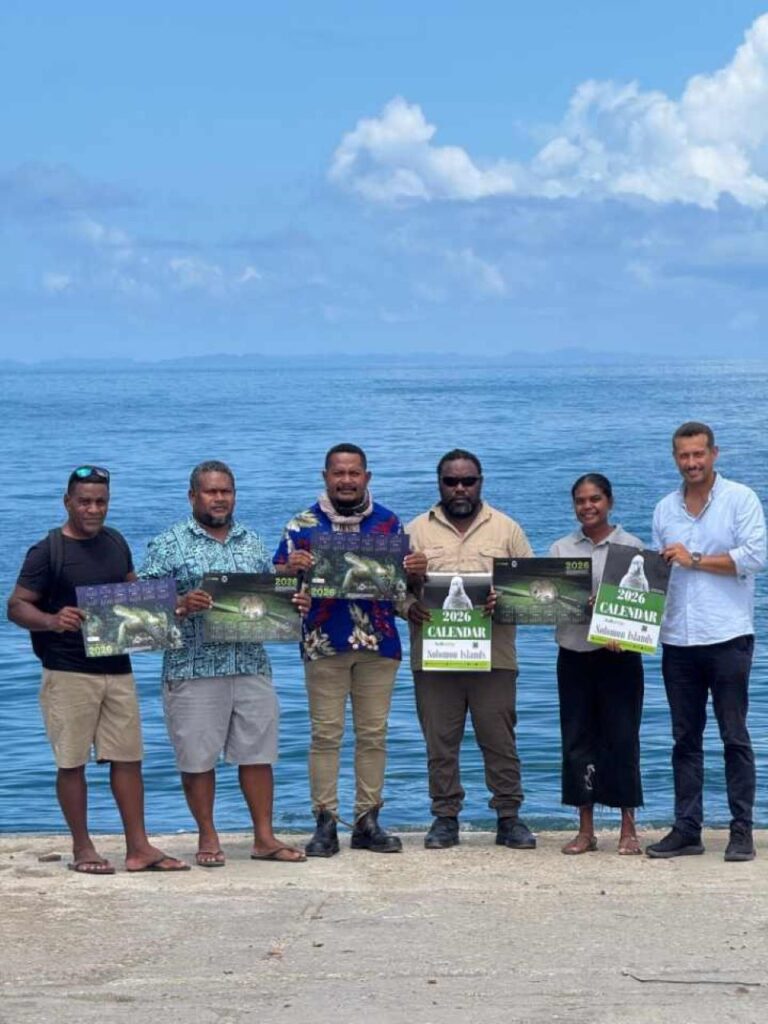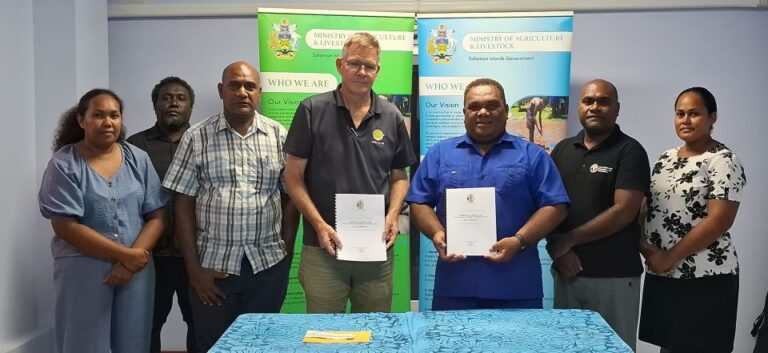Photo: Mrs. Jennifer Wate. (Photo Credit: SICAN)
BY JOHN HOUANIHAU
CHILDREN and women are amongst the most vulnerable group to climate change impacts in Solomon islands said Jennifer Wate Development Service Exchange General Secretary.
When speaking during day 3 of the climate change justice dialogue in Honiara Wate call on the national government to consider how the decision they make impacts these groups with regards to the issue of climate change.
“One of my call this morning is for our leaders to put on the localization lens when they are planning anything to do with climate change. We don’t have to look far. But look at our context. They need to take into consideration who they are planning for,’’ said Wate.
“I will still reiterate when we do our planning -when dealing with health, we must put on the localization lens in terms of coordination, administration, partnership, planning etc..
“Because if we don’t have that at the back of our minds we cannot realise and identify where and who to deal with, and 80% of rural population are the ones impacted,’’ she added.

Mrs. Wate also said decision makers should ask themselves the question of who are the most at risk population and how it could have been addressed when focusing on climate change and health.
“Are we prepared for that? that is my big question. If we are not capable for that, how can we be sure to deal with health infections posed by diseases and forthcoming outbreaks from impacts of climate change.
Mrs. Wate further said that pregnant women’s are also most at risk due to climate change related issues.
“Even the child in the mother’s womb is at risk if the mother is at risk, having malaria for example, surely it will affect the child. Therefore we need to prepare for that.
“Are these mothers sitting next door to clinics and health care centres to effectively and quickly access to health issue during emergency situations?, we must prepare.
“Our elderly people in communities.

Accessibility to health cares is a major concern for them. Practically in our local context our people have to travel far distances to access those services.
“So when doing plans in relation to infrastructure we need to consider our elderly people, do they access to water at their door steps? Our pregnant mother, have they access to clinic soundly or easily?
“And so you could imagine if we cannot provide these services for our people, our country’s population is increasing and we need to prepare and improve these health services,’’ she said.




